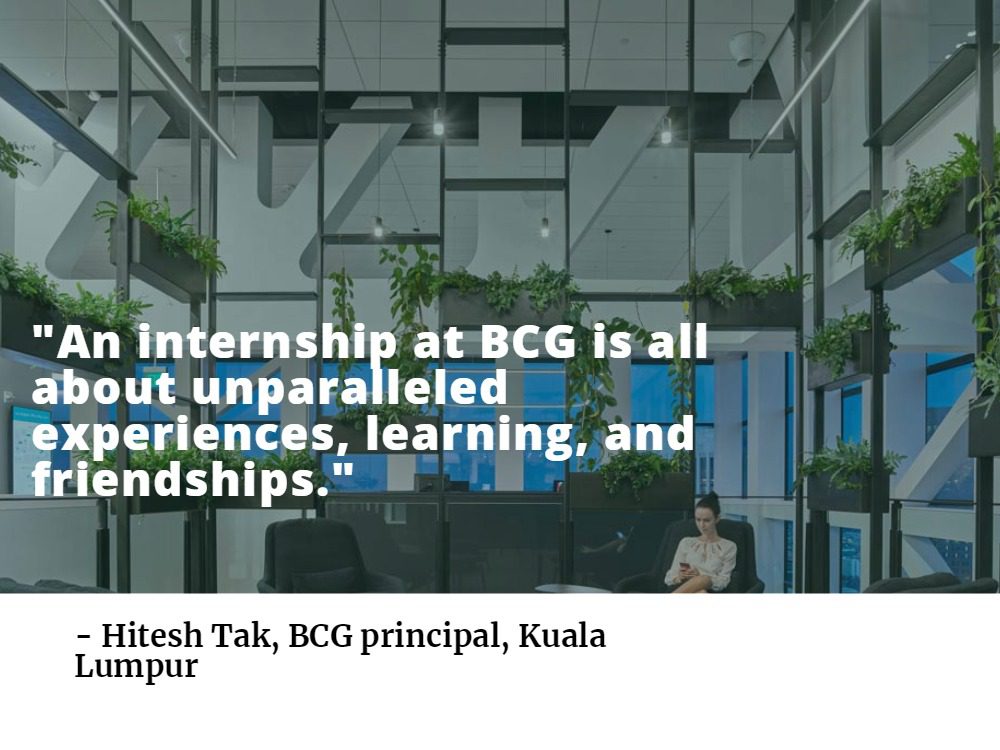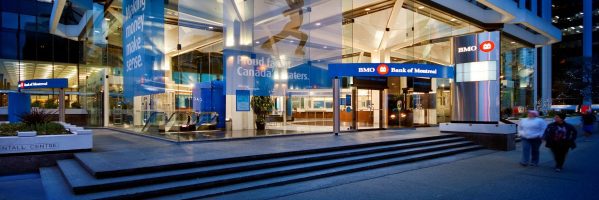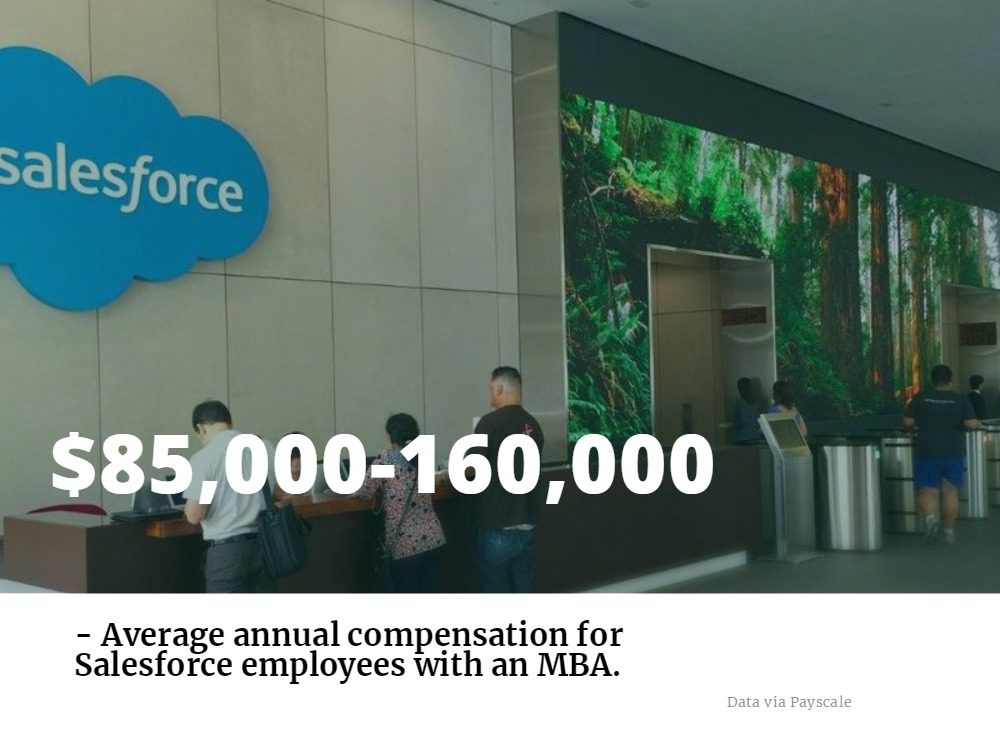Georgetown’s Newest MBA Application Essays Have Been Announced

The Georgetown University McDonough School of Business recently announced its newest application essays for admission to its full-time MBA and all-new Flex MBA programs.
According to the business school, which announced the new essays on Thursday, August 15, “Applicants can now choose one essay among three essay prompts, allowing them to showcase what they believe sets them apart from other applicants, either their leadership experience, how they have overcome challenges, or their values and beliefs.”
Shelly Heinrich, the McDonough School of Business Interim Associate Dean for MBA Admissions, says, “It’s important to us to that our students represent a diversity of backgrounds, experiences, cultures, and more—and we realized that professional and personal experiences showcasing this diversity do not always fit neatly into a single essay prompt.”
“We want to give applicants the flexibility to distinguish themselves from a competitive applicant pool,” Heinrich adds.
Applicants may submit one of the three following Georgetown MBA essays during their application process, in 500 words or less:
- Describe a situation when you were asked to lead outside of your comfort zone. What leadership characteristics did you exemplify in this situation that allowed you to succeed?
- Describe a situation when failure has been your fuel. What was your failure (or when did you not succeed to your full potential), and how did you use this as motivation to move forward and be successful in a future situation?
- Describe the personal brand that you will bring to business school using examples or experiences that support how you’ve developed it. How do you believe your personal brand will strengthen the McDonough community? As you complete your MBA program, how do you hope to see your personal brand evolve through the transformative experience of business school?
Hopeful entrants to the Georgetown McDonough full-time and Flex MBA programs may apply on October 9, 2018; January 7, 2019; April 1, 2019; and May 1, 2019. Click here to learn more about the school, its MBA programs, and admissions process.
How Can You Get a Job at Boston Consulting Group in 2018?

Boston Consulting Company—a global management consulting firm— has offices across more than 90 cities and 50 countries, advising clients in the private, public, and not-for-profit sectors, including a healthy chunk of Fortune 500 companies. Considered one of the most prestigious management consulting firms in the world, BCG was ranked fourth in Fortune’s “100 Best Companies to Work For” in 2018.
But, how can an MBA help you land a BCG job?
Working for BCG
According to Management Consulted, BCG has a demanding recruiting and hiring system. The firm hires undergrads as associates who work for two to three years before moving on or pursuing an MBA. However, it is very difficult and highly unlikely for an associate to make the leap to consultant without an MBA. If you’re hired as an MBA, you enter as a consultant with plenty of room for growth—to project team leader, principal, and then, finally, as a partner partner.
According to former BCG senior partner Lucy Brady, the company looks for a candidate’s record of academic and professional success, but also want to hire candidates who have overcome setbacks.
“We look for resiliency and adaptability, and the ability to learn from your mistakes and grow from them,” she said in a previous interview.
CNN revealed that 11.72 percent of MBAs want to work for BCG. However, BCG’s recruiting process is demanding, with Glassdoor previously ranking the firm among the most difficult companies to interview with.
The high job demand and lengthy interview process isn’t without reason: MBAs typically thrive at BCG due to the companies the emphasis on career development. BCG’s PTO (predictability, teaming, and open communication) policies allow for a healthy work-life balance for employees, which has paid numerous dividends. Internal surveys have shown that the program has led to a 74 percent increase in reported intentions to stay with the company for the long term. BCG was also among the companies that signed the 2016 White House Equal Pay Pledge.
BCG Recruiting on Campus
BCG actively recruits students on college and university campuses around the world. Campus visits are a way for students to connect with BCG, learn more about potential job opportunities, and feel out whether a career at BCG is a good fit.
“We have a presence at many of the top universities across the U.S., including Harvard, Stanford, the University of Pennsylvania, Northwestern, University of Michigan, Duke, and the University of Texas,” Tina Gao, BCG recruiting director, said in a previous interview. “We come to campus and hold a presentation to introduce the company and then are available for Q&A sessions. We also come back to help people train for our interviews and learn more about the company. We’ll come back to campus to interview the candidates we choose.”
You can see more upcoming BCG on campus events here. However, if your campus does not have a dedicated page, BCG encourage students to complete an online application for consulting internships.
BCG Internships
BCG’s consulting internship programs can be a great opportunity for students to get a feel for the the life of a consultant. BCG Associate and Consultant interns work with current BCG consultants, and are expected to contribute to a real client project. Interns are considered as true case team members and are tasked with everything from working on client projects to socializing with colleagues.

According to BCG, internships vary depending on the project or location. Some interns are expected to travel, but do return to their home offices at the end of each week for special events and social activities. Orientation and training sessions ease interns int their roles before being assigned to a case that aligns with their personal and professional goals, as well as the firm’s business needs.
BCG accepts online applications from exceptional business school, engineering, science, law, and humanities students who are nearing the completion of their undergraduate or graduate studies.
BCG MBA Fellows
If you’re an MBA who wants to get your foot in the door at BCG, it’s worth looking into the BCG Fellows MBA Program, which provides top applicants with monetary awards and individual mentorship by BCG consultants.
The fellow program is only available to full-time MBAs studying at the following business programs: Columbia Business School, Fuqua School of Business, Kellogg School of Management, Harvard Business School, MIT Sloan School of Management, Stanford Graduate School of Business, Stern School of Business, Tuck School of Business, Anderson School of Management, Booth School of Business, Ross School of Business, Darden School of Business, The Wharton School and Yale School of Management.
BCG MBA Salaries
If you score a job at BCG, you’ll also be earning a big paycheck—well worth the hours of MBA studies and the rigorous recruiting process. According to Management Consulted, MBAs hired a BCG make earn the following within their first year of employment:
- Signing Bonus: Up to $30,000
- Base: $147,000
- Relocation: $2,000-8,000
- Performance Bonus: up to $44,100
- Retirement: Profit-sharing into a 401k
What MBAs Should Know About BMO Financial

BMO Financial Group, established in 1817 as Bank of Montreal, is one of the largest diversified financial service providers in North America. According to BMO, more than 45,000 employees serve the financial needs of more than 12 million customers. Continue reading…
How Can You Score a Job at Salesforce with an MBA?

Salesforce, one of the country’s highest valued cloud computing companies, is actively looking for promising MBA graduates, offering diverse opportunities in tech, business, and sales. Since it’s founding in 1999, Salesforce has been growing wildly, becoming the first enterprise cloud company tor each $10 billion in revenue as of August 2017. And Salesforce isn’t just remarkable for its product’s success—the company was also rated as the “#1 Best Company to Work For” by Fortune.
The Salesforce culture is centered around the idea of “Ohana” (Hawaiian for “family”), and earned its place at the top of the list by offering incredible benefits to its employees—both monetary and mentally. It’s understandable why MBA’s would want a job at Salesforce Ohana, with their focus on helping strong performers find new challenges and opportunities for growth.
What Does Salesforce Look for in New Hires?
Salesforce makes recruiting a priority at every level through their Futureforce University recruitment program. Salesforce offers new hires the same incredible opportunities available to all of their employees—seven days of paid time for volunteering, networking opportunities, and access to the Executive Lunch & Learn and Speaker Series that puts interns and new hires in direct contact with Salesforce leadership.
Because of Salesforce’s focus on having their employees give back to their communities, they seek out new hires who have made a demonstrated impact within their past efforts, whether at school or professionally. In 2015, Salesforce’s senior vice president of global recruiting, Ana Recio, commented on the different ways applicants could make themselves stand out.
“What did you do to differentiate your job from others?'” she said. “What was your absolute impact, your legacy? We always look for people who truly were kind of thought leaders and change agents.”
How to Get Your Foot in the Door?
MBA graduates and current students can apply directly for open roles. Current students will most directly benefit from the company’s MBA internship: a 12-week program that students can pursue during the summer in between years one and two of their program. Each summer, MBA interns are hired in the fields of product marketing, product management, CSG business analyst, corporate development, and data analytics. If recruiters think there might be a good fit, applicants will likely be given a 30-60 minute phone screening, followed by an interview with a hiring manager. Before offering the position, MBAs will likely have to partake in a panel interview/case study, presenting their professional and academic accomplishments.
Salesforce also recruits recent graduates (those who graduated in the last 12 months) in the fields of tech, sales, and business. The precise roles and interview process for each varies depending on the field.
How Well Does a Job at Salesforce Pay?
The majority of hires at Salesforce, both full-time and interns, are for tech-centric positions. However, the company does offer supreme compensation for those with business degree backgrounds—especially those with an MBA.
According to Payscale data, MBA graduates wit a job at Salesforce earn between $85,000 and $160,000 USD annually.

It’s no secret that one of the reasons Salesforce tops the Glassdoor list of “Best Places to Work” is the compensation. Although, as with any position, salary will vary depending on a number of factors, Glassdoor’s compensation of full-time employees shows a lower-end salary range of $60,000-80,000 annually (for account executives and sales engineers) and upwards of $141,000 for senior engineer positions.
What Do Current and Former Salesforce Interns Think?
Danielle, who interned with Salesforce as a product marketing MBA intern, commented on her work experience and Salesforce’s company culture in this video. “Not only am I working on independent projects as part of the internship, but I’m also shadowing people in my team and really seeing what a true day in the life is for a project manager within the app cloud,” Danielle said. “Other internships are very focused on their projects and feel very siloed but here at Salesforce I’m really able to be integrated with the team as a whole.”
Eamon, a software engineer who began at Salesforce as a recent graduate, also commented on his experience. “As a new grad what’s interesting is there really is no pathway you’re supposed to follow, it’s what you make of it,” he said. “It’s the people you go out of your way to meet, the experiences you make, the projects you decide to take on.”
Want To Work For NBCUniversal? An MBA Can Help

NBCUniversal is among the world’s largest entertainment companies, bringing “the development, production, and marketing of entertainment, news and information to a global audience.” From television networks and a motion picture company to theme parks and Internet-based businesses, NBCUniversal is the perfect place for an MBA to put their degree to work.
NBCUniversal History
Both NBC and Universal were founded in the early 20th century, with Universal opening in 1915 as “the only moving-picture city in the world” and NBC as the nation’s first permanent radio networking beginning in 1926. Over the years, the companies have been responsible for some of the most memorable moments of entertainment history, such as the 1936 Berlin Olympics broadcast over NBC Radio, hosting the first presidential TV debates between John F. Kennedy and Richard Nixon on NBC in 1960, and the premier of now-classic films like Back to the Future on Universal.
In 2004, NBC and Universal officially became one company—NBCUniversal—joining together cable networks like USA, SCI FI, Bravo and others with Universal’s movie studio and theme parks in Hollywood and Orlando.
Why Work at NBCUniversal?
With such a vast portfolio of companies and networks within NBCUniversal, someone with an advanced business degree can find a number of places throughout the company that can benefit from their in-depth business knowledge and leadership. Roles are available at the company all throughout the country in a number of business fields such as Human Resources, Business Development, Communications, Finance & Accounting, Marketing, Ad Sales, Public Relations, and more.
Getting Your Foot in the Door
NBC Universal offers a number of Internships and Campus 2 Career programs that give opportunities to both undergraduate and graduate students, with many of these opportunities can lead to full-time roles. Through the Campus 2 Career center at NBCUniversal, a number of roles are available in fields like Marketing, Human Resources, Web Content Management, Ad Sales and more.
Every semester, recruiters from NBC Universal request interns through the Campus 2 Career center. The company also hosts special recruiting and networking events, working alongside organizations such as the Society of Hispanic Engineers or the National Black MBA Association (NBMBAA).
YOU MIGHT ALSO LIKE: Top MBA Recruiters: Time Warner
Typically, internships at NBCUniversal run from three to four months long, coinciding with the school semesters. The internships are paid, although salary varies by department, and—while not guaranteed—can often result in getting hired for a full-time role with the company.
For recently graduated MBAs, the company also offers a number of Early Career & Leadership programs, such as the East/West Coast Page Program or the Experienced Commercial Leadership Program.
What Type of Jobs are Available?
Through the Campus 2 Career program, NBC Universal has a number of openings for interns in a variety of business departments. Below are just some of the roles currently available at the company which specifically seek MBA candidates.
- Digital Distribution MBA Intern—Universal City, CA
- MBA Strategy & Business Development Intern—Universal City, CA
- Home Entertainment: MBA Strategy Intern—Universal City, CA
NBCUniversal is dedicated to advancing the careers of individuals who are passionate about their work and want to move into higher-level management or leadership roles. Programs like the International Future Leaders Programme expose early-career post-graduates to four different roles over the course of two years, allowing them to experience work in all three of the company business units. Participants in this program will also gather together at the end of the program to work on a project with a real impact within the company. They will also attend a number of courses specifically designed to train up-and-coming managers.
Programs like the NYU Stern School of Business full-time MBA, which gives students an opportunity to focus their studies towards earning a career in the entertainment industry, give a definitive advantage. Several Stern MBA grads do, in fact, work with the entertainment giant.
Even if the path of an MBA may not be your preferred journey, you can always become a page.
Savvy MBA Application Strategy: How Many, Which Schools, and When to Apply

You’ve decided the MBA is the next stop on your career path. What now? The smartest applicants are those who take the time to create an informed MBA application strategy—a well thought-out game plan that can help you obtain your goals as efficiently and effectively as possible.
One of the first challenges you’ll face is school selection—strategically choosing which schools to target, bearing in mind the competitive mix of those schools.
In recent years, MBA applicants appear to be trending downward in terms of the total number of schools to which they apply. Research we have undertaken on data from MBA DecisionWire suggests that candidates now typically apply to about five programs. You can also explore MBA ApplyWire to learn more about other candidates application strategies.
“A combination of factors could be at play here,” suggests Alex Brown, a consultant to Clear Admit who spent years working in MBA admissions at Wharton. “More information is now available about schools, so it is easier for candidates to determine which are truly target schools, rather than the more shotgun approach of yesteryear,” he says. “The complicated nature of the application, engaging recommenders and so forth, may also be encouraging applicants to really refine their school list before applying.”
Making Your List
So what types of schools should make up the list a candidate ultimately applies to? While the answer will obviously depend on the individual candidate, one piece of advice applies to all. “Remember: Only apply to schools you would be absolutely happy to attend,” says Brown. “There is no value in applying to a school just to get an acceptance letter if it’s not a school that will help you reach your goals.”
With that main tenet as a guide, many candidates find it valuable to classify schools into three buckets: reach schools, realistic schools and safety schools. Applying to at least one school in each of these buckets helps position a candidate to get into and ultimately attend the best possible school her candidacy will allow.
Say you apply to all safety and/or realistic schools and gain admission to every school. While on the surface this appears like a successful MBA application strategy, that is only true if your mix of schools included the best possible school to reach your goals. “If you only apply to ‘realistic’ schools, you will never know if you could have achieved something that you presumed was beyond your reach,” Brown points out. Therefore, a truly successful application strategy often includes one or two rejections along with acceptances at schools where you will thrive.
The final consideration of a comprehensive MBA application strategy is when to apply to your selected schools. That is, what admissions round should you target for which schools and why. More on that in an upcoming post, so stay tuned.
This article has been edited and republished with permissions from Clear Admit.
